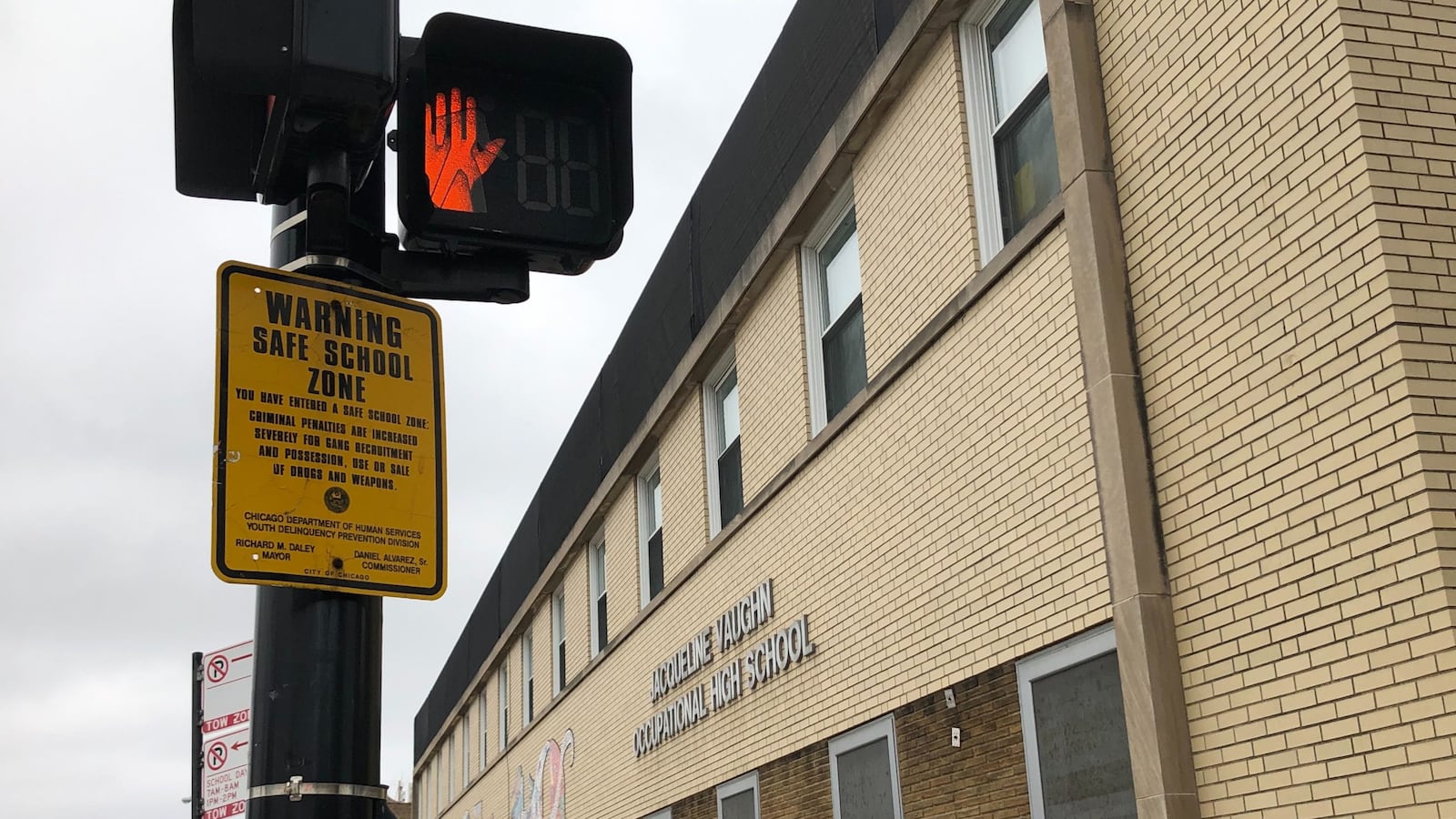This past weekend brought news of the first confirmed novel coronavirus case in Chicago Public Schools and the district’s decision to close Vaughn Occupational School, where a classroom aide diagnosed with the illness works. Chalkbeat Chicago compiled a list of the key things for families to know about this development.
What is the current risk to Chicago students?
Health department officials say most Chicago students are at a low risk for coming down with coronavirus. So far, officials have asked only Vaughn Occupational School students, employees and anyone who visited the school since Feb. 25 to stay home until March 18. Some students at Vaughn, which serves about 200 students with special needs, have medical conditions that make them more vulnerable.
Public health authorities have not recommended that anyone else, including siblings of Vaughn students and youngsters who rode buses their schools share with Vaughn, self-quarantine — unless, of course, they are feeling sick. Chicago’s public health commissioner, Allison Arwady, said that the risk is low for those who have not been in direct close contact with a confirmed case.
“Unless that student is actually diagnosed with coronavirus, we do not make recommendations for all the people around them to stay home,” Arwady said at a weekend press conference.
Public health officials will decide whether classes at Vaughn can resume on March 19. Separately, the district is providing paid leaves to employees who recently visited a country flagged as high risk by the Centers for Disease Control — China, Iran, South Korea, Italy and Japan — and directing them to stay home.
Who in the district is getting tested for COVID-19?
District and public health officials said they are asking all Vaughn families and employees to provide their health and medical histories and daily body temperature readings. But officials are not proactively testing non-symptomatic people for coronavirus, in part because such tests may provide a false negative result.
The Chicago Department of Public Health said they tested Vaughn students and employees who have symptoms — fever, cough and shortness of breath. Although some results are still pending, so far all such tests have come back negative. State officials announced Monday two relatives of the Vaughn aide — women in their 50s and 70s with no connection to the school — have tested positive for the virus. However, Arwady said, “To date, there is no sign of transmission at the school.”
Officials are also monitoring those who were in close contact with the sickened aide. They defined that as having spent at least 10 minutes within 6 feet of her.
Health officials advise others who start feeling sick to talk to their physicians to determine if testing for COVID-19 makes sense.
What else is the district doing to protect students?
The coronavirus cases have prompted parents to raise anew longstanding concerns about the cleanliness of schools. Officials have responded that they are sending additional cleaning supplies to schools. They also are asking facilities workers to regularly stock bathrooms with soap and are encouraging teachers to talk with children about proper handwashing. On Sunday, Chicago Public Schools said facilities staff would be disinfecting “high touch” areas, such as doorknobs and light switches, daily
Are leaders anticipating additional school closures?
Not for now. The city’s public health department is not advising further school closures. They are also not recommending cancelling planned events or school gatherings. They are calling on all schools to ensure they are routinely cleaning school buildings and to review their online learning and “social distancing” strategies.
What is social distancing, and how does it apply to schools?
Social distancing refers to measures to limit personal contact, in order to impede the spread of infectious diseases. One example is shuttering schools amid an outbreak, but there are also less drastic steps that schools might take, such as canceling or delaying large events. Another approach is advising people to keep a distance of at least 3 feet to 6 feet from each other — a step that might not always be practical in packed classrooms and bustling school buildings.
How can families get up-to-date information?
The district is encouraging Vaughn families who need help, including food assistance, as well as anyone who does not have a health care provider to reach out to the Office of Student Health & Wellness at oshw@cps.edu or via the Healthy CPS Hotline 773-553-KIDS (5437). The district is posting updates and guidance at www.cps.edu/coronavirus.
What has your experience been as a parent? Have you been able to get helpful information and answers to pressing questions from your child’s school or elsewhere in the district? If so, where did you find the answers? If not, what would you like to know? Tell us in the form below.


